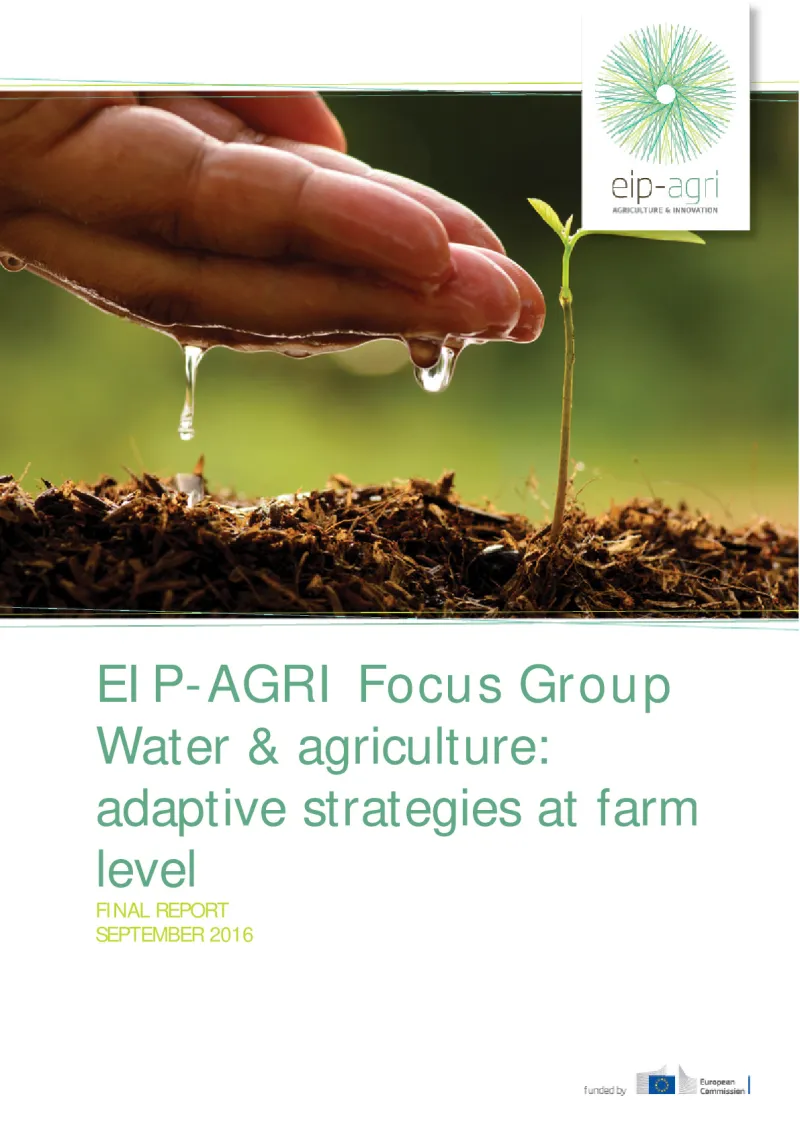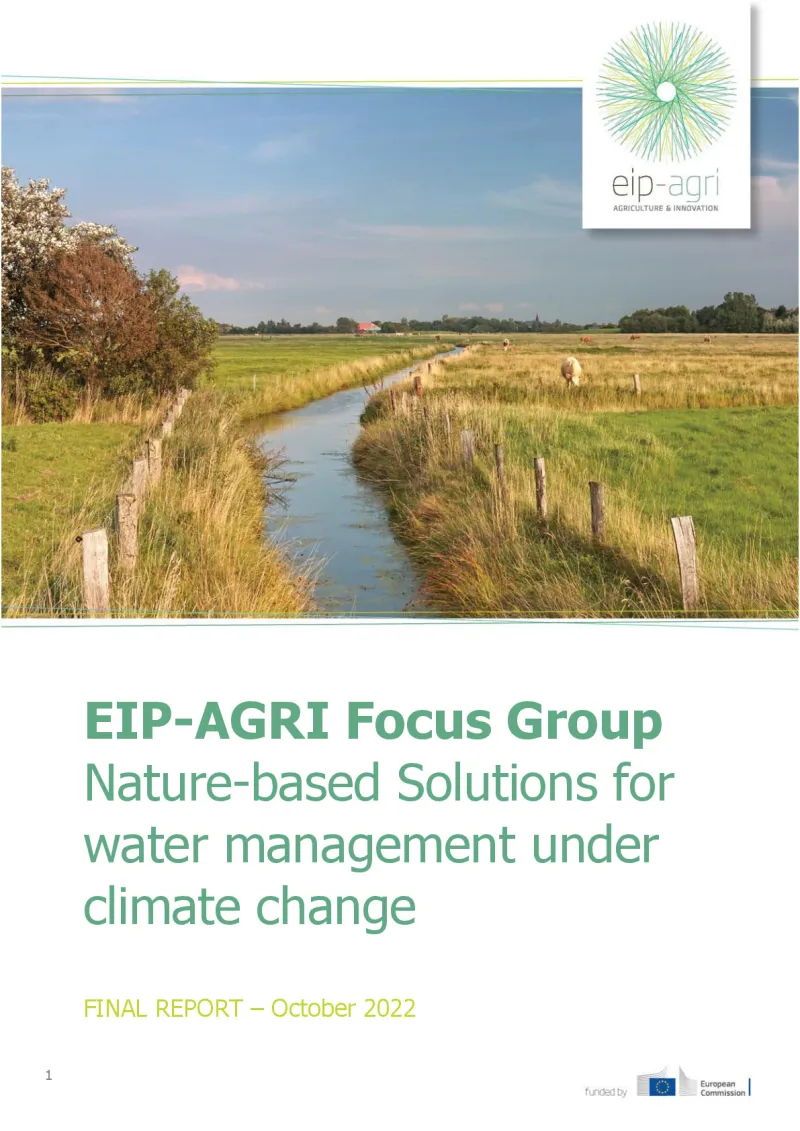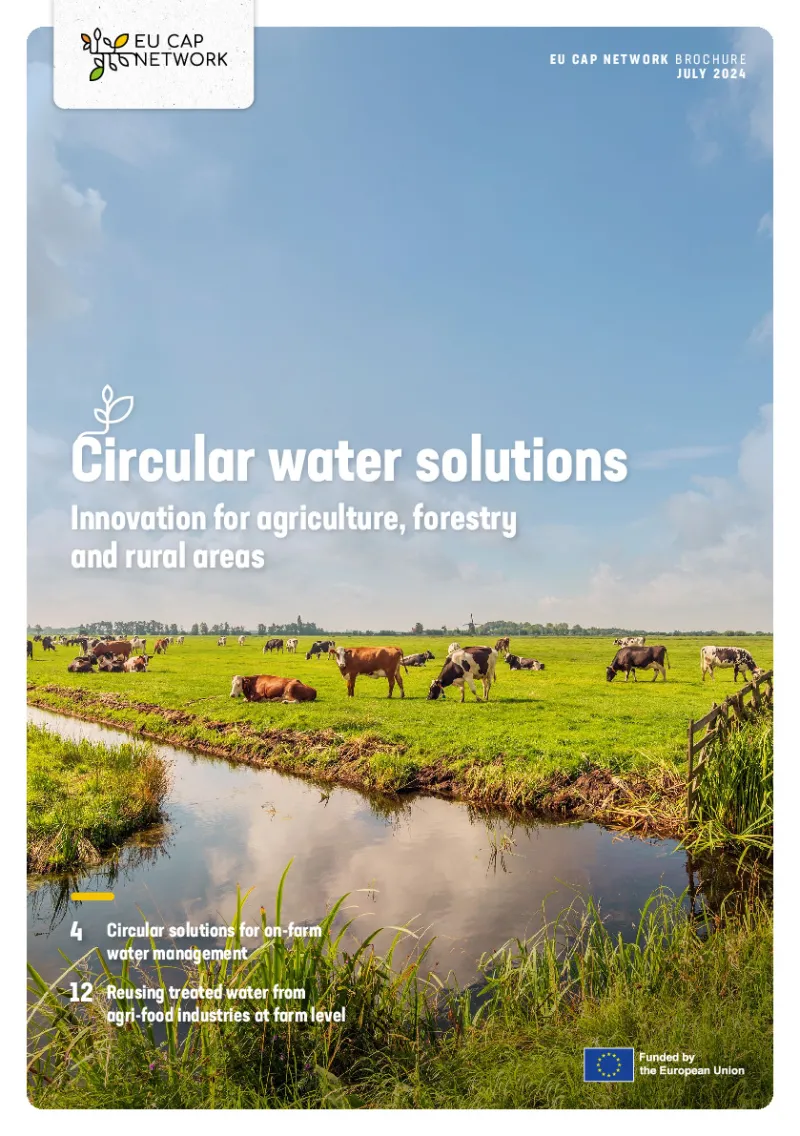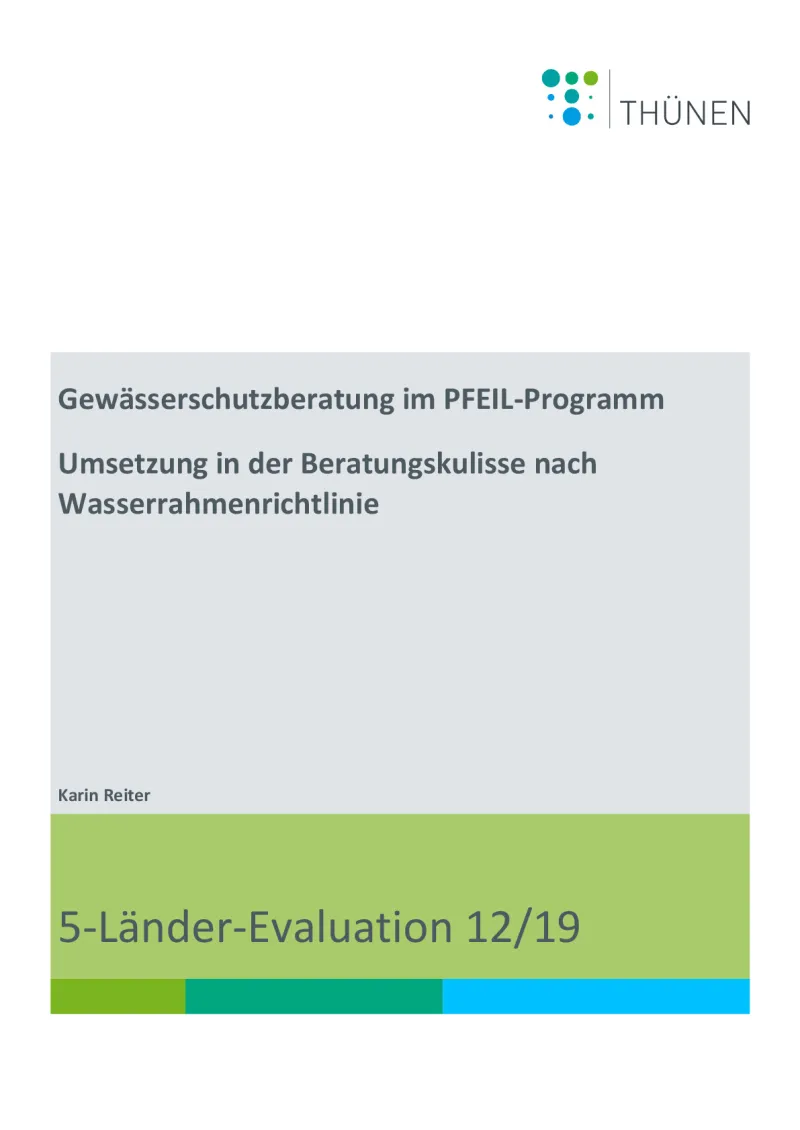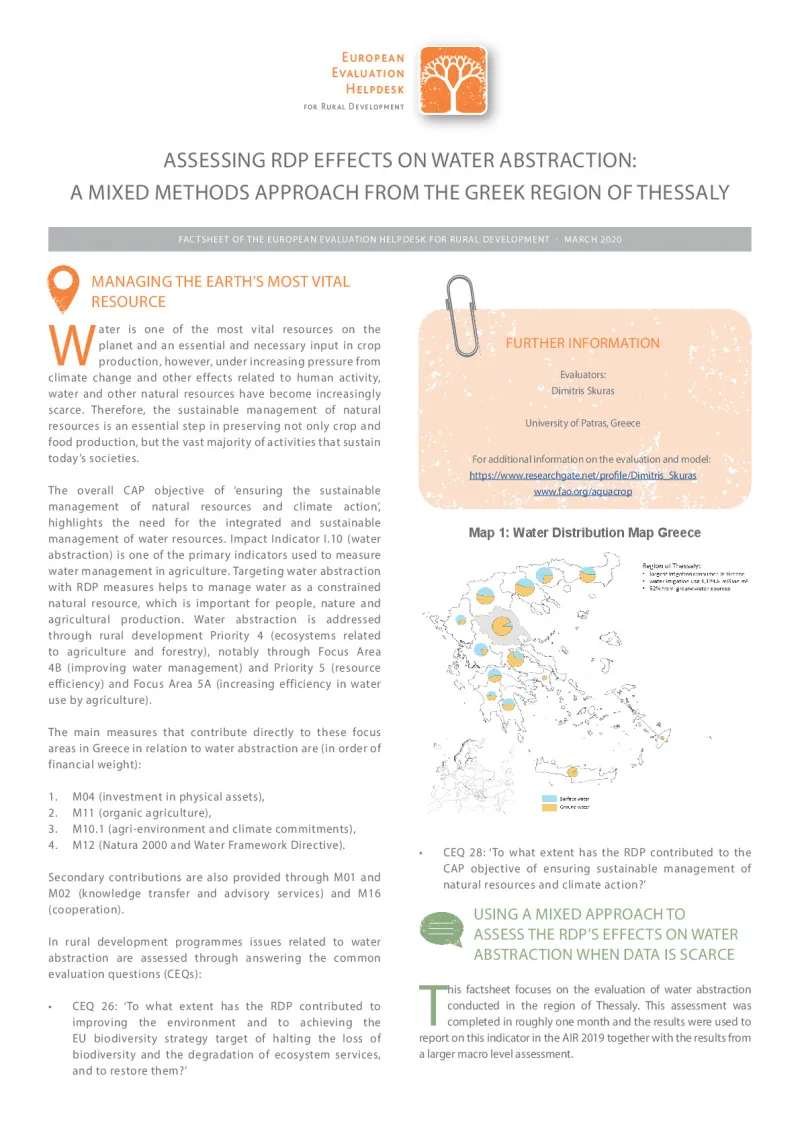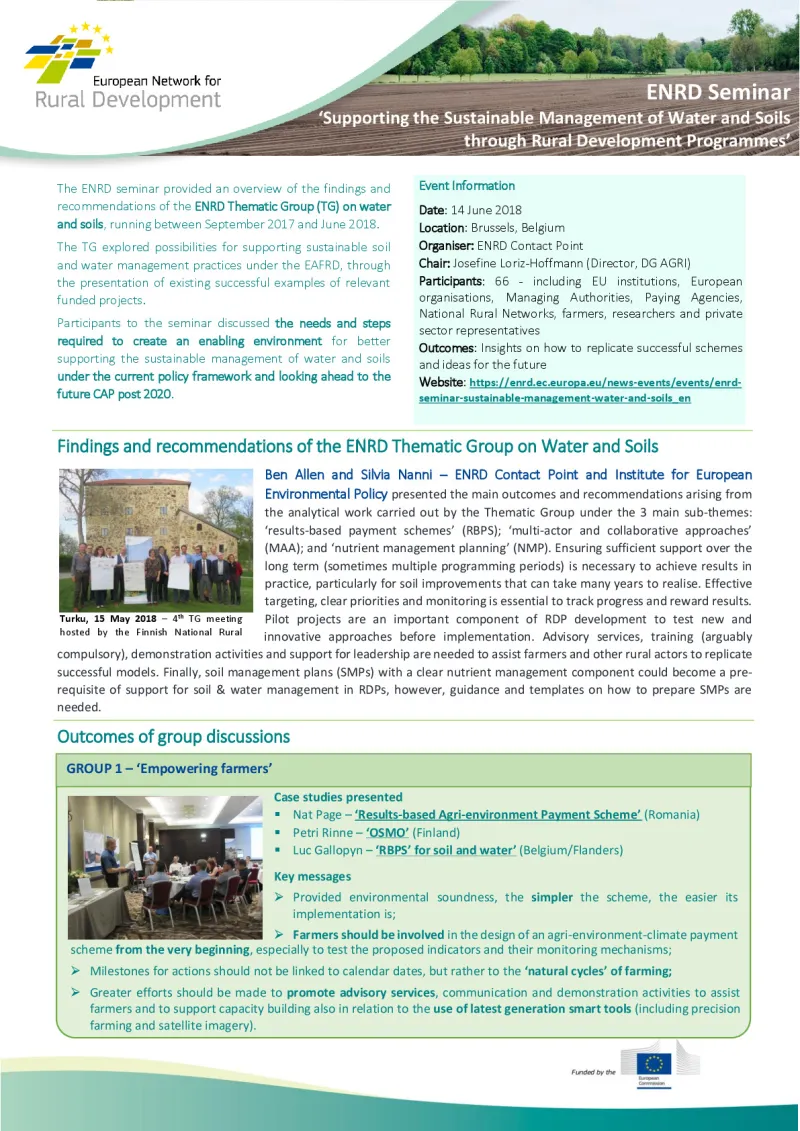Thematic Group on Improving Water Resilience in Rural Areas through the CAP
This Thematic Group (TG) will provide the opportunity to examine how to best utilise the CAP’s potential for improving water resilience in rural areas and promote more systemic transformative changes in the way water and land are managed to enable rural areas to withstand climate extremes better.
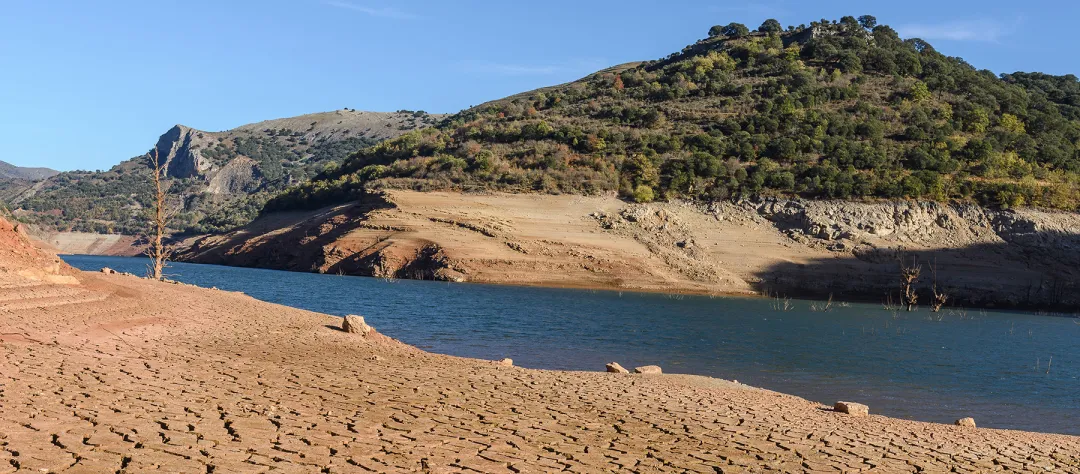
The availability of clean, reliable water resources is key for our livelihoods, human health and wellbeing, food security, and environmental sustainability. Yet, in the light of a changing climate, water is increasingly becoming a scarce resource, affecting citizens, farmers, foresters, the environment, and businesses alike. Taking action to improve water resilience to secure its ongoing availability is therefore paramount, for example, through reducing water demand and increasing the efficiency of water use through, e.g., changing to less water-intensive crops, increasing water re-use and investing in nature-based solutions to improve infiltration and water retention in the landscape.
Not all regions and sectors will be affected in the same way, but rural areas and communities, and the forestry and agriculture sectors in particular, are severely affected by extreme weather events, such as droughts, floods, and water scarcity. Different economic sectors account for different water abstraction levels and have different potential for water savings. Based on average figures from 2000-2022, EU agriculture is responsible for 29% of total water demand (from both surface and groundwaters), second only to electricity production, although it is estimated that there is the potential for water savings of up to 20% of water abstraction from agriculture (EEA 2025). However, overall, the agricultural sector has the highest net consumption of water of all sectors, since most of the water used is not returned to the environment (unlike electricity production) (EEA 2024). There is a range of options to reduce the agriculture sector’s reliance on water, as well as to support rural areas to adapt to climate change, water scarcity, drought, and the risk of flooding. These include the reduction of losses and leakages, the use of fewer water-demanding crops, smart farming, more efficient irrigation systems, rainwater harvesting, as well as nature-based solutions (such as increasing green infrastructure, including woodland areas and restoring wetlands and floodplains) and improved soil health to increase water retention and infiltration to help mitigate flooding.
In the EU, various environmental and water policies address the sustainable use of water resources (e.g. EU Water Framework Directive). To improve existing efforts, the European Commission recently published its European Water Resilience Strategy, which aims to promote actions for restoring and protecting the water cycle and ensuring access to sufficient good quality water for people, nature and the economy. The Common Agricultural Policy (CAP) provides an extensive toolbox as well as funding to support agriculture, forest and rural areas in enhancing water efficiency, circularity, and water retention via national CAP Strategic Plans (CSPs). Due to different needs, some Member States are more advanced than others in taking action in this area. There is huge potential to build on existing experience to improve the overall water resilience in rural areas across the EU.
This TG is an opportunity to be part of a committed group of experts and relevant stakeholders that will examine how to best utilise the CAP’s potential for improving water resilience in rural areas and promote more systemic transformative changes in the way water and land are managed, enabling rural areas to better withstand climate extremes. The TG will look at how this can be best supported through the CSPs, e.g. through the greater uptake of actions, such as natural solutions for greater water retention within the landscape, investments required to improve water efficiency, or water re-use.
Objectives
The objectives of this TG are to:
- Identify the most beneficial actions and approaches to improve water resilience and explore the range of CAP interventions that could be used, as well as possibilities for upscaling and incentivising uptake through improved CAP scheme design and implementation.
- Examine the role of the supporting environment (e.g. knowledge sharing, promotion of innovative solutions and advisory services) and how this can best be deployed to improve the uptake of relevant CAP actions to achieve greater water resilience.
- Identify and share best practice examples and case studies of improved water resilience in rural areas that can be shared and potentially replicated by Member States.
The TG will consist of a small (around 40) but dedicated cross-section of informed and engaged stakeholders, including policymakers and administrators at regional and national levels (including Managing Authorities, Paying Agencies), beneficiaries, such as farming and forestry organisations, LEADER Local Action Groups (LAGs), advisers, researchers, national CAP networks (NNs), and other relevant rural and environmental stakeholders. Participants will commit to engaging in two meetings and related activities, ensuring diverse perspectives and active contributions to achieving the TG's objectives.
- The first meeting will take place online on 18 September 2025.
- The second meeting will take place in person on 06 November 2025.
There is no charge for attendance at these meetings. However, for the in-person meeting, travel and accommodation costs may be covered for TG members representing farmers, farmer organisations, LAGs, European and national non-governmental organisations, and researchers/universities. All other TG members will need to pay for their own travel and accommodation costs.
The meetings will be held in English without interpretation.
Expressions of interest can be submitted through the button below
Express your interest by 12 August 2025
Participants will be selected on the basis of the following criteria:
Necessary
- Experience/knowledge of and motivation to explore themes related to reducing water demand and increasing the efficiency of water use through, e.g., changing to less water-intensive crops, increasing water re-use and investing in nature-based solutions to improve water retention in the landscape;
- Representing either policymakers and administrators at the regional and national level (including Managing Authorities, Paying Agencies), beneficiaries, such as farming and forestry organisations, LAGs, advisers, researchers, NNs and other relevant rural and environmental stakeholders;
- Capacity and willingness to engage, network and exchange effectively at national, regional and local levels;
- Firm commitment to participate in two meetings of the TG (online on 18 September, in-person on 06 November), and the activities in between;
- Ability to communicate clearly in English without interpretation.
Desirable
- Familiarity with or willingness to explore examples of improving water resilience through measures such as reducing losses and leakages, using fewer water-demanding crops, smart farming and more efficient irrigation systems, and rainwater harvesting, as well as nature-based solutions and improving soil health to increase water retention and help mitigate flooding;
- Commitment to share design and implementation models and best practices with other members during the TG activities;
- Commitment to share TG outputs with other colleagues or networks outside of the TG.
Please note that when selecting the TG members from the expressions of interest, the EU CAP Network will, to the extent possible, also consider the need to ensure a balance of participants from EU Member States, sectors and topics, and gender. Successful applicants will receive a confirmation of participation as soon as possible and before 22 August 2025 at the latest.
If you have any questions, please contact us at thematicgroup1@eucapnetwork.eu.
To follow the work of this Thematic Group, please visit this page regularly, subscribe to our monthly newsletter, and follow us on social media (#WaterResilience and #WaterWiseEU).
Resources
Links
- Thematic Group on Landscape Features and Biodiversity
- Thematic Group on the Design and Implementation of Eco-schemes in the new CAP S…
- Thematic Group on Green Architecture: Designing Green Strategies
- Thematic Group on Enhancing Biodiversity on Farmland for Improved Resilience
- Thematic Group on Economic Vulnerability of Farming
- European CAP Network’s Steering Group
- Subgroup on CAP Strategic Plans
- European CAP Network’s Assembly

